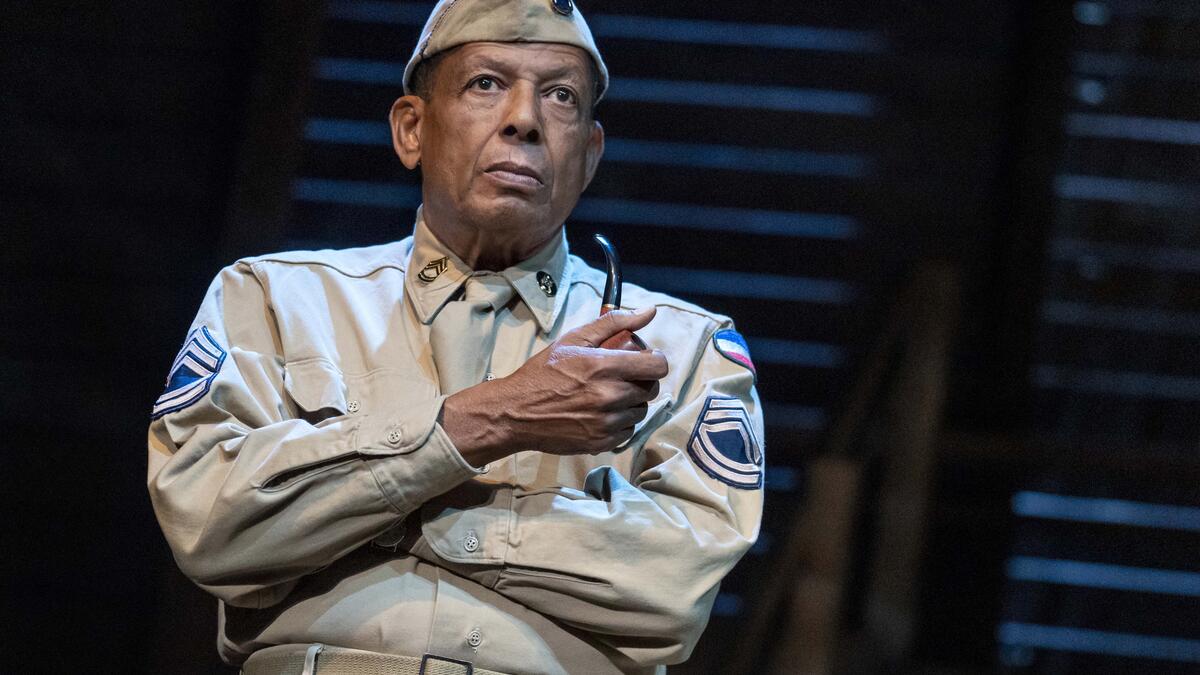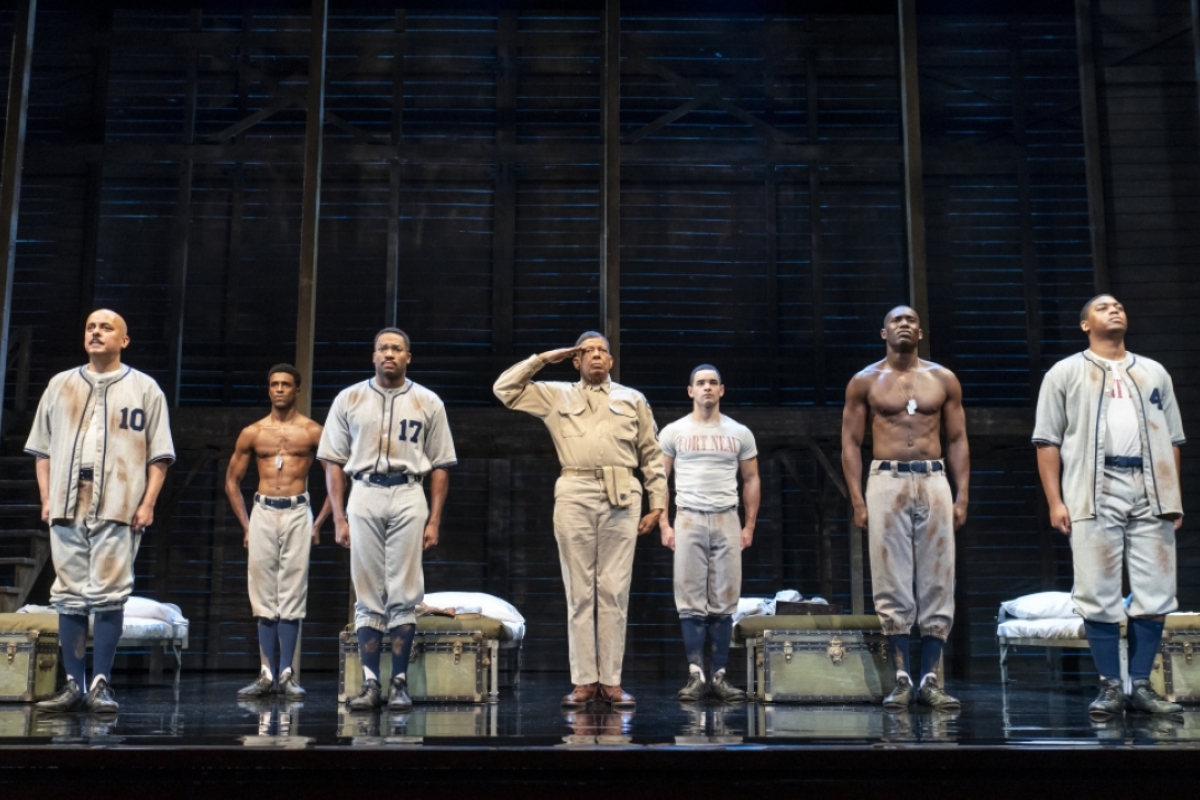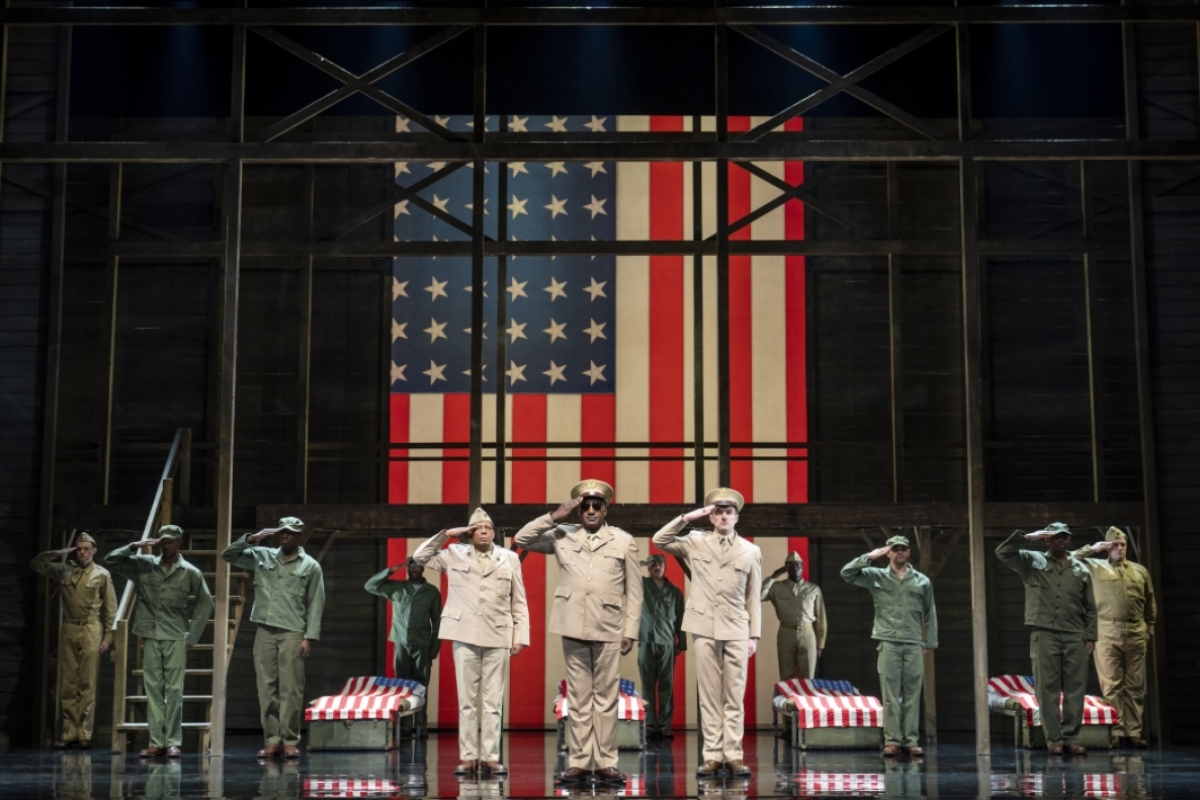'A Soldier’s Play' brings murder mystery to life on ASU stage

Eugene Lee as Sgt. Vernon Waters in "A Soldier's Play." Photo by Joan Marcus
Set in 1944 at Fort Neal, Louisiana, a segregated all African American Army base during World War II, “A Soldier’s Play” is a murder mystery that follows the investigation into the murder of a soldier on the base. The play explores this man’s past and his complicated relationships with his white superiors and fellow African American soldiers.
In an investigation where suspects include members of the Klu Klux Klan, highly respected white military officers and even other African American soldiers, the lead investigator, Capt. Davenport, an African American Army officer, must sort through conflicting testimonies and sparse evidence to find out whodunit and, more importantly, why.
“It's an interesting insight into the African American experience in the United States segregated Army in the 1940s. These African American soldiers were anxious to go to battle with the hope that when they came back from fighting that democracy would live up to its promise to no longer treat them as second- or third-class citizens,” said cast member Eugene Lee. “But the play is also about self-hate within a culture and racism in the segregated Army.”
Davenport ultimately reveals the complex relationships and racial tensions between the African American soldiers and white officers, and how racism affects the soldiers’ daily lives all while unraveling a dark truth about the lengths people will go to defend their truth.
Lee portrays Sgt. Vernon Waters, who plays a key role in the investigation. Waters is an older, by-the-book Army man who has extremely high and often unrealistic expectations for his subordinates.
“He really isn't a well-liked guy, but he’s someone who wanted to see the Black race thrive and succeed, especially in the Army,” Lee said. “Sgt. Waters, as he's portrayed by pretty much everyone who talks about him, is a spit-and-polish soldier, and that's what he wanted all of his recruits to be as well — spit-and-polish, perfect soldiers.”
This isn’t Lee’s first time performing in “A Soldier’s Play." He portrayed Corporal Bernard Cobb in the original cast in 1981 when it was staged off Broadway by the Negro Ensemble Company. He starred alongside actors like Denzel Washington and Samuel L. Jackson.
“It's a wonderfully well-written, poetic, nuanced play, and the history that I've had with it really kind of gives me an interesting insight into trying to portray this character with some clarity and maturity. I know I am 40 years older than I was when I first did this play. And I've lost count of the number of plays I've done over those 40 years. So, I’ve come full circle with this in a way,” Lee said.
“A Soldier’s Play” isn’t the only thing Lee is once again returning to. He, alongside other performers from the Negro Ensemble Company, came to ASU to work on a performance with former ASU theater and film Professor Gus Edwards during the '80s. Lee said he remembers the experience fondly and is “excited to be back in Tempe."
Even though the play takes place in a time nearly 80 years ago, there are many themes that still exist today, and through the tense scenes and hard-hitting dialogues, there are moments of genuine camaraderie that are filled with music and laughter.
“This play is what I call the truth, told with clarity, and the truth doesn't change. And so many of the truths about what was happening in the segregated Army in 1944 are still true,” Lee said. "(The audience is) gonna meet characters that are familiar to them. They're gonna see their uncle, they're gonna see your cousin, they're gonna see themselves, they're gonna see their parents and the challenges that they have had to deal with. Whether they're African American or not, they’re gonna get some insight into the human condition.”
More Arts, humanities and education

2 ASU professors, alumnus named 2025 Guggenheim Fellows
Two Arizona State University professors and a university alumnus have been named 2025 Guggenheim Fellows.Regents Professor Sir…

No argument: ASU-led project improves high school students' writing skills
Students in the freshman English class at Phoenix Trevor G. Browne High School often pop the question to teacher Rocio Rivas.No,…

ASU instructor’s debut novel becomes a bestseller on Amazon
Desiree Prieto Groft’s newly released novel "Girl, Unemployed" focuses on women and work — a subject close to Groft’s heart.“I…



